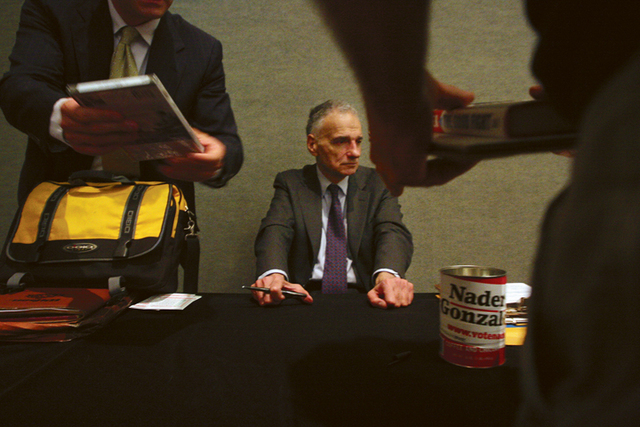Also On The Ballot: Ralph Nader
A Day With Independent Presidential Candidate Ralph Nader


Ralph Nader looks on during a book signing at the University of New Mexico on Tuesday, Aug. 26.
Tina Larkin





